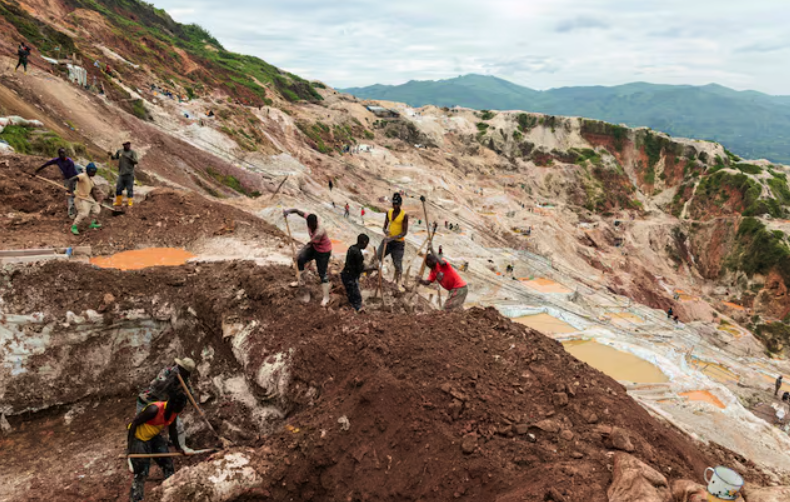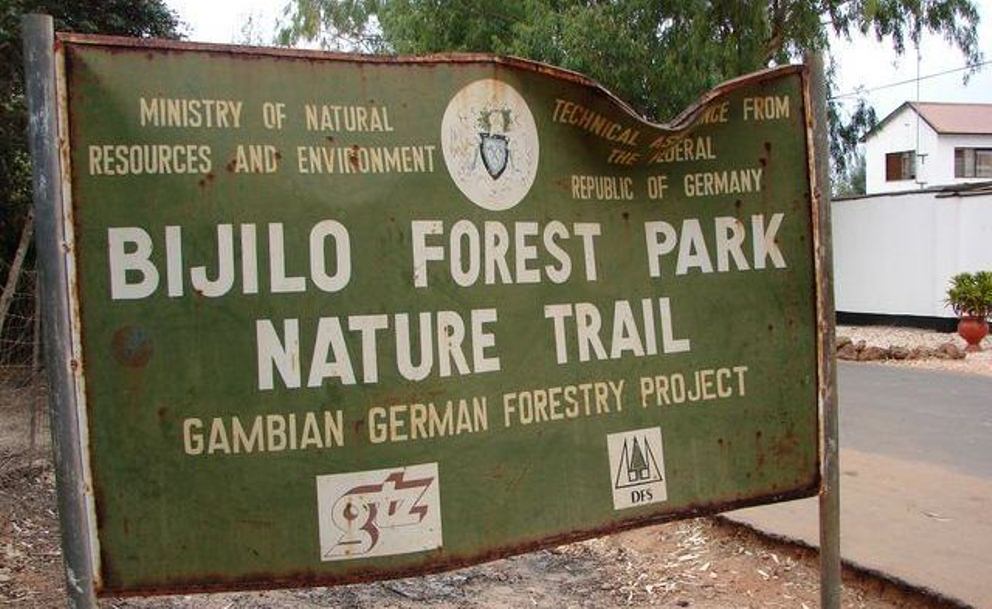Gambiaj.com – (BANJUL, The Gambia) – The government of The Gambia is facing mounting criticism over its increasing tendency to allocate portions of protected forests for development projects under the guise of national interest.
This week, a fresh controversy erupted after the Ministry of Environment, Climate Change, and Natural Resources (MECCNAR) announced the temporary use of 2.5 hectares of the Salaji Forest Park for basalt storage, citing urgent infrastructure needs. Environmentalists argue this is the latest in a series of troubling encroachments on protected areas.
Temporary Use or a Slippery Slope?
The government insists that the Salaji Forest Park remain intact and has not been degazetted. According to a press release, the Department of Forestry authorized the temporary use of 2.5 hectares of the forest—part of an old quarry—for the storage of basalt imported by GACH Group, a private investor. MECCNAR emphasized that the decision followed consultations and an environmental assessment, framing it as a calculated step to minimize biodiversity loss.
Yet, critics see this as part of a larger pattern of exploiting protected forests for commercial gain. “Temporary usage often becomes permanent,” noted environmental activist Lamin Ceesay. “This sets a dangerous precedent, undermining the integrity of our forest reserves.”
Bijilo Forest Park Under Siege
The announcement came on the heels of revelations by Environment Minister Rohey John-Manjang that 2.7 hectares of the Bijilo Forest Park—known as “Monkey Park”—was degazetted in February for the construction of a luxury hotel. The park, a vital biodiversity hotspot and tourist attraction, has faced repeated encroachments since 2017. Earlier projects, including the construction of the OIC Conference Centre and plans to allocate land to the U.S. Embassy, sparked public outcry.
Defending the decision, Minister John-Manjang cited tourism infrastructure needs and the legal authority vested in her office to propose degazetting forest areas with cabinet approval. However, critics argue that such moves are short-sighted. “We’re losing priceless natural assets to development projects that could be located elsewhere,” said one conservationist.
A Worrying Trend
The Bijilo Forest Park is not the only casualty. Minister Manjang disclosed that 19.5 hectares of Pakala Forest Park in Chamen were degazetted in 2022 for a solar plant that was never built. The land remains earmarked for future investors.
Another 82.5 hectares of Nyanibereh Forest Park in Jarra were degazetted for resettlement purposes. Attempts to reverse this would require evicting families, an action the minister deemed economically and socially unfeasible.
Environmentalists argue these cases reveal a disturbing trend: the government prioritizes short-term economic gains over long-term ecological sustainability.
High Stakes and Growing Backlash
Since the Barrow administration took office in 2017, environmentalists have accused the government of chipping away at the country’s fragile ecosystems. The degazetting of forest parks is often framed as being in the “national interest,” but critics say it reflects a lack of commitment to sustainable development and climate change mitigation.
“The government speaks of net-zero targets and adherence to the Paris Agreement, yet their actions tell a different story,” said activist Fatou Jallow. “Once these forests are gone, they are gone forever.”
The Gambia’s forest reserves are critical to the country’s biodiversity, climate resilience, and eco-tourism. Forests like Bijilo, Salaji, and Nyanibereh are not just environmental treasures but also economic assets, attracting tourists and providing essential ecosystem services.
As the government continues its forest de-gazetting spree, conservationists warn of a grim future. Without stronger protections and a shift in development priorities, The Gambia risks eroding the very foundations of its environmental and economic sustainability.
The growing discontent among environmentalists, researchers, and citizens underscores a need for greater transparency and accountability. Activists are calling for an independent review of forest policies and stricter criteria for degazetting protected areas.
“The government must adopt a more holistic approach to development—one that balances infrastructure needs with the imperative of environmental preservation,” said Ceesay. “Our forests are not disposable.”
The question remains: Will the government heed these warnings, or will The Gambia’s green spaces continue to disappear in the name of progress?










